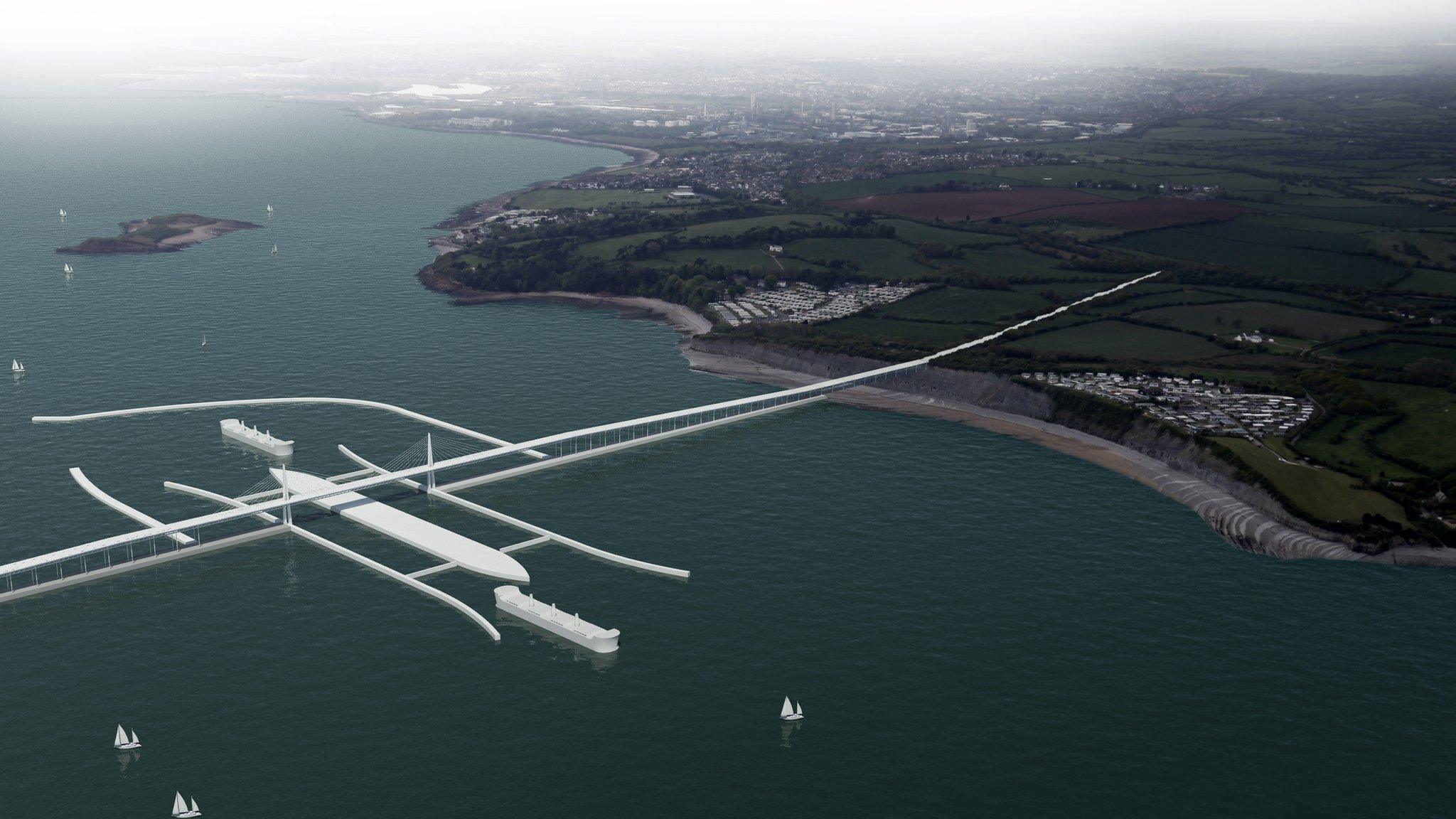Severn Estuary tidal power plans must be 'nature positive' says RSPB
- Published
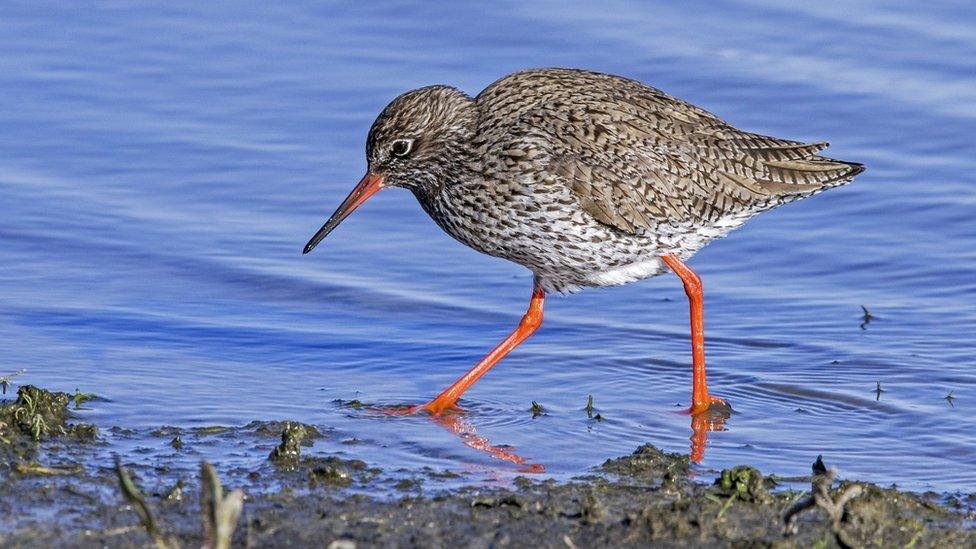
The Severn Estuary is a crucial habitat for birds like the redshank, says the RSPB
New plans to harness energy from the Severn Estuary must be "nature positive", the RSPB has warned.
The message comes after a commission was launched - backed by the UK and Welsh governments.
The Severn Estuary Commission will spend a year studying how a new energy scheme could convert the estuary's huge tidal range into power.
But a bird expert who has been studying the area for 50 years said the "unique habitat" needed to be protected.
The estuary is of huge ecological importance, with many previous schemes failing because of their potential impact on the environment.
Speaking to BBC Bristol this week, the Severn Estuary Commission chair Andrew Garrad said it was time to look again at the idea.
"Various things have changed," he said.
"One is the importance of energy security, the second is climate change, and the other is understanding the environment, nature and developments in technology," he added.
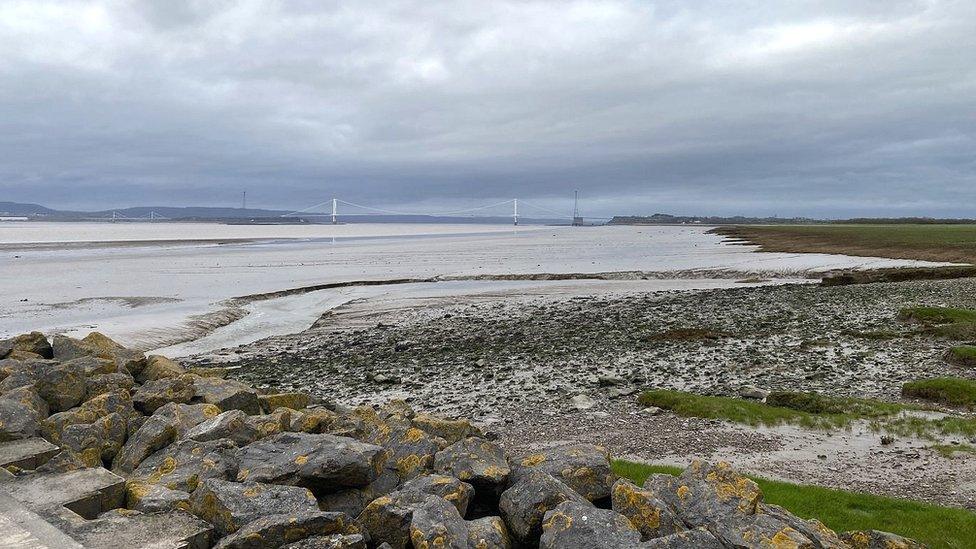
The Severn Estuary has one of the largest tidal ranges in the world
Human activities are causing world temperatures to rise, with more intense heatwaves and rising sea-levels among the consequences.
Things are likely to worsen in the coming decades, but scientists argue urgent action, such as a move away from fossil fuels and towards renewable energy, can limit the worst effects of climate change.
It is thought the estuary has the potential to provide up to 7% of the UK's electricity, but dozens of previous schemes have failed to be delivered due to costs, complexity or the projected loss of wildlife.
Mr Garrad spent his career working in the development of wind turbines, and said the commission intended to learn the lessons of the past.
"There have been problems of various different sorts. We will be absolutely transparent and objective, so a very nice first step is to make all the information available to everybody," he said.
'We've lost so much'
The Severn Estuary is home to a wide variety of bird and other animal species, as well as unique wetland habitats.
Paul Bowerman has spent 50 years birdwatching along its shores. He said he understood why the commission had been created.
"We need green energy. If that means small tidal lagoons or free-standing turbines, that would be far more acceptable than a complete blockade of the estuary," he said.
But on the idea of a barrage - running from one side of the estuary to the other - Mr Bowerman said: "Anything that messes with this unique habitat is a no go.
"We've lost so much already further down the river due to development. We need to protect what we have left. Once it's gone it's gone."
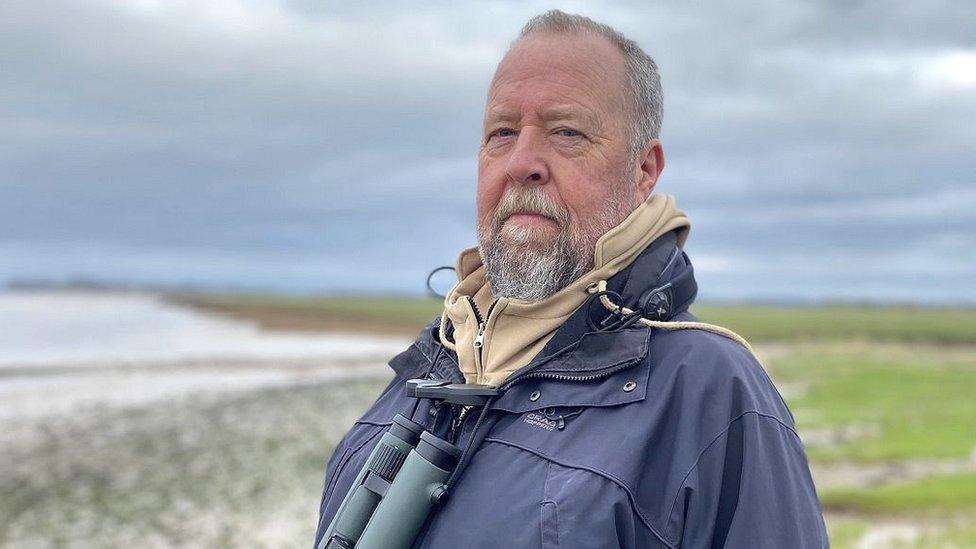
Paul Bowerman has been enjoying birdwatching on the estuary for 50 years
Annie Smith, head of nature policy at RSPB Cymru, said the commission must strike the correct balance when setting out its work.
"The huge tidal range that makes it [the Severn Estuary] such a high energy system also makes it globally important for wildlife, providing vital habitats for tens of thousands of wading birds and water fowl, and for rare fish species that migrate from the sea to spawn in our rivers," she said.
"This new commission must rise to the challenge of finding innovative ways to harness the energy of the estuary system in a way that is nature positive - to contribute not only to net zero, but to the UK's global commitment to restore biodiversity," she added.

Follow BBC Gloucestershire on Facebook, external, X, external and Instagram, external. Send your story ideas to us on email, external or via WhatsApp on 0800 313 4630, external.
Related topics
- Published4 March 2024

- Published6 January 2024

- Published22 October 2023
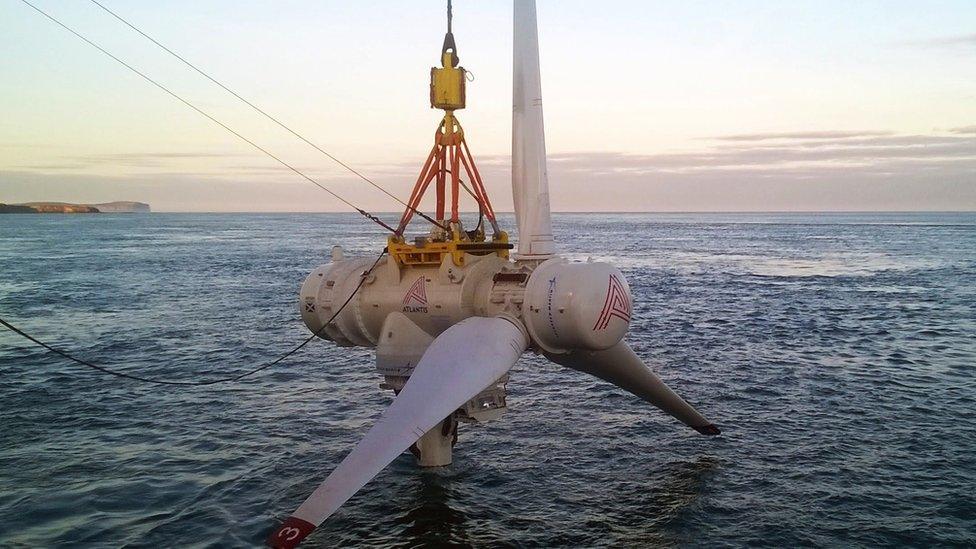
- Published9 January 2013
